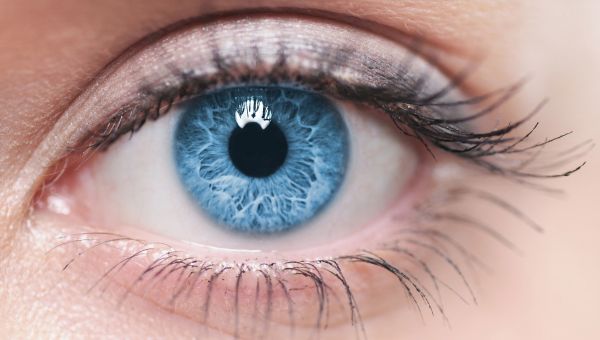5 big signs you should see a neurologist
Symptoms like headaches and trouble sleeping may be easy to ignore, but they could signal a serious health problem.
Updated on July 10, 2023

If you’ve had a brain injury, seizure, or stroke—the fifth leading cause of death in the United States—it’s likely you saw a neurologist at the hospital. A neurologist is trained in diagnosis and treatment of conditions of the nervous system, such as Parkinson’s disease, multiple sclerosis, amyotrophic lateral sclerosis (ALS), epilepsy, and other ailments of the brain,… Show More
If you’ve had a brain injury, seizure, or stroke—the fifth leading cause of death in the United States—it’s likely you saw a neurologist at the hospital. A neurologist is trained in diagnosis and treatment of conditions of the nervous system, such as Parkinson’s disease, multiple sclerosis, amyotrophic lateral sclerosis (ALS), epilepsy, and other ailments of the brain, spinal cord, and nerves.
Neurologists deal with some serious stuff, but they also help manage smaller shifts in your health, like a change in sleep patterns or sudden memory trouble. These shifts may not seem all that significant, but they shouldn’t be ignored.
If you experience changes in balance, cognition, headaches, or vision, make an appointment with a healthcare provider (HCP) to be checked out. An HCP who knows the most about your physical and mental health history may be best suited to help. After assessing your condition, your HCP can refer you to a neurologist if necessary.
Here are five common but lesser-known reasons you should be referred to a neurologist, plus signs you should head right to the emergency room.
Show Less
You can't keep your balance
We all take a tumble at one point or another, whether it's by missing a stair or slipping on a wet spot on the kitchen floor. But if you lose your balance more than the average person or experience bouts of dizziness, spinning, or faintness—and stumble or fall as a result—a visit to your HCP might… Show More
We all take a tumble at one point or another, whether it's by missing a stair or slipping on a wet spot on the kitchen floor. But if you lose your balance more than the average person or experience bouts of dizziness, spinning, or faintness—and stumble or fall as a result—a visit to your HCP might be in order. “If a person suddenly starts to fall or lose balance, that’s a reason to see a neurologist,” says Sean Hubbard, DO, a neurologist in Haddon Township, New Jersey.
The older we get, the more likely we become to struggle with our equilibrium; nearly a third of older adults have difficulty with balance or walking. It can be caused by a number of things, including problems with the inner ear, issue with nerves in your legs and feet, and Parkinson’s disease. Speak with an HCP about these balance difficulties, especially if they're new, severe, or different than usual.
Severe or sudden loss of balance, however, could indicate an emergency, especially when coupled with certain symptoms. For example, along with a serious headache, trouble speaking, or numbness in the face, arm, or leg, a loss of balance may signal a stroke. In cases like this, head directly to the hospital.
Show Less
You have sudden and severe headaches
Headaches caused by stress, allergies, caffeine, or hormones are fairly common, affecting almost everyone on occasion. Migraines, which affect almost 16 percent of American adults, are severe headaches that can trigger nausea, sensitivity to light, and even vomiting. The occasional headache is not… Show More
Headaches caused by stress, allergies, caffeine, or hormones are fairly common, affecting almost everyone on occasion. Migraines, which affect almost 16 percent of American adults, are severe headaches that can trigger nausea, sensitivity to light, and even vomiting. The occasional headache is not likely cause for concern. But, if severe headaches or migraines develop suddenly or are very different than normal, they may signal a neurological problem.
“Any significant change from the baseline is serious,” says Dr. Hubbard. “If a headache leaves you unable to balance long enough to get up off the couch and walk to the refrigerator, that lets us know there's a neurological problem." These headaches can be a sign of something as simple as an ear infection, but when they become frequent or severe enough to interfere with everyday life, you should make an appointment to speak with an HCP.
Still, there are times you shouldn’t wait. Severe headaches accompanied by another neurological issue—vision loss, inability to speak, or weakness—should be taken to the ER. These could be signs of a stroke, concussion, meningitis, or a brain tumor, all of which need immediate attention.
Show Less
Your vision changes
Gradual changes in vision can be a caused by a number of conditions related specifically to the eyes, like cataracts, glaucoma, and age-related macular degeneration (AMD). However, not all vision problems originate with the eyes themselves; some are caused by neurological issues.
A stroke, during… Show More
Gradual changes in vision can be a caused by a number of conditions related specifically to the eyes, like cataracts, glaucoma, and age-related macular degeneration (AMD). However, not all vision problems originate with the eyes themselves; some are caused by neurological issues.
A stroke, during which blood flow to the brain is cut off, may cause sudden blurred vision, double vision, or vision loss. Changes in eyesight can also be a symptom of a nervous system disorder, like multiple sclerosis (MS), or it can be the result of a brain tumor. In general, sudden double vision, visual dimness, or loss of sight in one or both eyes could signal a problem. Don’t ignore them; head to the emergency room.
Show Less
You’re easily confused—when you weren’t before
It’s human nature to forget small things once in a while, like where you set down your keys. Occasional forgetfulness can also be the result of medication, stress, or lack of sleep.
But regularly occurring confusion, memory loss, and trouble thinking could also signal a major health problem. “If a… Show More
It’s human nature to forget small things once in a while, like where you set down your keys. Occasional forgetfulness can also be the result of medication, stress, or lack of sleep.
But regularly occurring confusion, memory loss, and trouble thinking could also signal a major health problem. “If a person manifests a tendency to be confused, that often lets us know that something's going on,” says Hubbard. For one thing, these are all signs of dementia, a group of conditions—including Alzheimer's disease—that affects thinking, social abilities, and memory.
Sudden, serious disorientation may also indicate delirium, especially when it’s coupled with drastic mood swings, changes in alertness, and shifts in sleep. Delirium happens for several reasons, including medication interactions or side effects, infection, and severe chronic illness. While it usually goes away after a few days, distinguishing it from dementia, delirium is a critical issue should be reported to an HCP as soon as possible.
More serious reasons to get medical attention? Seizures, strokes, and brain tumors can result in confusion and memory loss and should be checked by a professional without delay.
Show Less
You have trouble sleeping
Sure, sleep apnea, anxiety, and a wonky bedtime schedule can hinder your ability to get a good night’s rest. However, if you’re experiencing overwhelming attacks of drowsiness, an uncontrollable urge to move your legs, or trouble sleeping in conjunction with other symptoms, see an HCP. A… Show More
Sure, sleep apnea, anxiety, and a wonky bedtime schedule can hinder your ability to get a good night’s rest. However, if you’re experiencing overwhelming attacks of drowsiness, an uncontrollable urge to move your legs, or trouble sleeping in conjunction with other symptoms, see an HCP. A neurological condition may be the culprit.
Narcolepsy, for example, is a nervous system disorder that causes daytime drowsiness and sudden bouts of sleep. It may be difficult for people to stay awake for long periods of time and function well throughout the day. Despite being tired during waking hours, people with this condition have problems sleeping through the night and are often plagued with nighttime sleep disturbances.
Restless legs syndrome (RLS) is another neurological condition; it disrupts sleep by causing overwhelming and irritating urges to move your legs. Symptoms of RLS often worsen when you're lying down or sitting for long periods of time. Experts don’t know exactly what causes the condition, but many believe there are genetic and neurological components.
It’s possible that the changes in your sleep patterns, vision, balance, or headaches aren’t serious, but it’s better to be safe than sorry. Your health is important, so don’t wait to see an HCP about anything that seems a bit unusual.
Show Less
Centers for Disease Control and Prevention. Leading Causes of Death. Page last reviewed Jan 18, 2023.
American Academy of Neurology. What is a Neurologist? Accessed on April 28, 2023.
Gaspar AGM, Lapao LV. eHealth for Addressing Balance Disorders in the Elderly. J Med Internet Res. 2021;23(4):e22215.
National Institute on Deafness and Other Communication Disorders. Balance Disorders. Page last reviewed March 6, 2018.
National Institute on Aging. Older Adults and Balance Problems. Page last reviewed Sept 12, 2022.
Heidi Godman. Causes of common headaches. Harvard Health Publishing. Feb 3, 2021.
National Institute on Aging. Stroke: Signs, Causes, and Treatment. Page last reviewed Feb 9, 2023.
Burch R, Rizzoli P, Loder E. The prevalence and impact of migraine and severe headache in the United States. Headache. 2021;61(1):60-68.
Harvard Health Publishing. Headache: When to worry, what to do. Page last reviewed Apr 15, 2020.
Centers for Disease Control and Prevention. Meningococcal Disease: Signs and Symptoms. Page last reviewed Feb 7, 2022.
National Institute of Neurological Disorders and Stroke. Migraine. Page last reviewed Jan 20, 2023.
Centers for Disease Control and Prevention. Ear Infection. Page last reviewed Jul 1, 2021.
Centers for Disease Control and Prevention. Common Eye Disorders and Diseases. Page last reviewed Dec 19, 2022.
Stanford Medicine. Causes of Double Vision. Page last reviewed 2023.
National Institute of Neurological Disorders and Stroke. Multiple Sclerosis. Medline Plus Magazine. Jun 8, 2022.
National Institute on Aging. Memory, Forgetfulness, and Aging: What’s Normal and What’s Not? Page last reviewed Oct 21, 2020.
National Institute on Aging. What is Dementia? Page last reviewed Dec 8, 2022.
MedlinePlus. Delirium. Page last reviewed Jun 16, 2021.
MedlinePlus. Sleep Disorders. Page last reviewed Jan 3, 2020.
National Institute of Neurological Disorders and Stroke. Narcolepsy. Page last reviewed Jan 20, 2023.
National Institute of Neurological Disorders and Stroke. Restless Leg Syndrome. Page last reviewed Feb 7, 2023.
More On


video

article

slideshow


video


video
